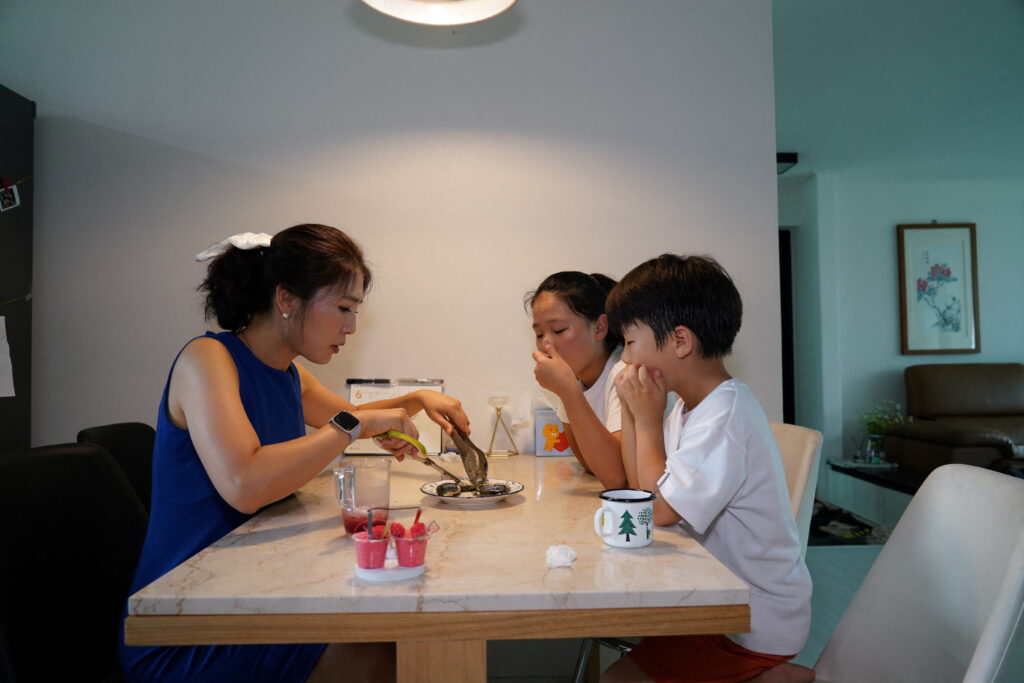South Korea is struggling with the lowest fertility rate in the world, but the government is still not embracing adoption. South Korea is in the middle of a fertility crisis, and there are no signs that it will get any better. In fact, the birth rate is falling year after year, while the number of singles and people opting out of marriage is rising rapidly despite various governments’ attempts to match young people through government-sponsored matchmaking events and ‘baby bonuses’.
But maybe the South Korean government should start using some of the billions of won dedicated to matchmaking events and campaigns to instead promote the acceptance of diverse family structures.
In 2020, South Korea had 20,000 children in orphanages. The media regularly reports on abandoned newborns found in parks, temples, public bathrooms and parking lots. In 2023, South Koreans were shocked to learn that a woman had killed her two babies, born in 2018 and 2019, and hid their bodies in a fridge. She told the police that she committed the infanticides because she couldn’t afford to raise the children.
Poverty is a real problem in many South Korean households, particularly for single parents. The percentage of single parents in poverty is higher in South Korea than in any other OECD country.
Single mothers are still heavily stigmatised in a society that places great emphasis on traditional family structures. Three out of four teenage single mothers quit their studies due to their pregnancy and despite a new law securing pregnant students’ right to study, many schools still nudge pregnant teens to drop out. Women who become pregnant due to an affair sometimes find no solution other than getting an abortion or abandoning their newborn to avoid the shame and dishonour it will bring to their family.
One of South Korea’s few baby boxes, located in a church in Seoul, has received more than 2100 babies since 2009. That is approximately three newborns each week every week for 15 years. The church offers the mothers — who can find no other solution but to give up their baby — a monthly baby package providing for the basic needs of the child if the woman changes her mind. But the government provides no such assistance or protections for mothers in this situation.
It is also still almost impossible for same-sex couples and single women in South Korea to receive reproductive procedures such as intrauterine insemination and in vitro fertilisation despite the fact that these services are legal. This is partly due to the ethical guidelines set by the Korean Society of Obstetrics and Gynecology, which advises doctors not to perform these procedures on unmarried women.
If the government did more to address the stigma and change the perception of single motherhood, it might encourage more women to carry their pregnancies to term, or maybe even decide to raise a child by themselves.
It is not only single mothers that the South Korean government is failing. The thousands of children living in South Korean orphanages face a miniscule chance of being adopted. Just 324 children were adopted in 2022, with 142 of these children — almost half — sent abroad for international adoption. It is a huge failure that the South Korean government finds foster homes for less than 1 per cent of orphans, while also sending children abroad amid a fertility crisis.
This also sheds light on another problem in South Korean society — the aversion towards adoption. Traditionally, Koreans place a heavy emphasis on bloodlines, making many couples hesitant to adopt. But it might benefit the government — and doubtless the orphans — if it did more to promote adoption.
With many women wishing to pursue their careers and live independently, South Korean women are becoming mothers later and later in life. Statistics show that the average age for first-time mothers was 33.5 in 2022. If this tendency continues, there will be many South Korean couples wanting children without the physical ability to have them. A more positive view on adoption might even lead to an interest among South Korean couples in adopting foreign children, which would further benefit South Korean society.
South Korea might also experience an increase in the number of children adopted if it legalised same-sex marriage and adoption. Again, this would help create more diverse family structures and boost tolerance for these kinds of households.
Despite being a high-tech and wealthy society that prides itself on being called modern, South Korea is still heavily influenced by the Confucian family model. It is understandable that Korean society, which historically was denied the right to embrace its identity and culture, wants to keep core traditional values. But it should be open to changing its old-fashioned views on the ideal family type if it wants to increase its fertility rate.
It is time for South Korea to find new ways to solve the fertility crisis, as the current path is evidently not working. Instead of focussing solely on traditional families, it is time for a cultural change in the perception of what a family can be, and that begins with the government acknowledging diverse family types.
Malene Jensen is a Seoul-based freelance journalist and a guest lecturer at Osaka University.


South Korea's persistent fertility crisis could be alleviated by promoting broader acceptance of diverse family structures. This could include lessening the stigma associated with single parenthood, particularly among women, by reducing the emphasis on traditional family structures. South Korea should also work towards building societal inclusion of same-sex couples and encouraging adoption.